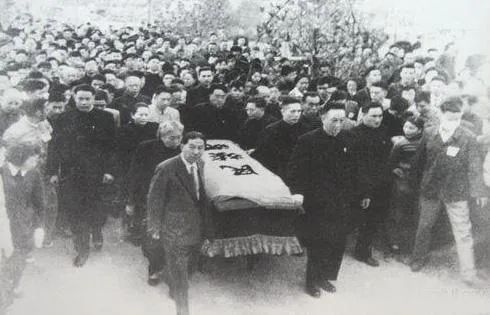The time has begun--
Mao Zedong
He stood in the middle of the podium at the bottom
He stood at the bottom of the earth with four flags flying
Directly before the landforms of China
He stood like a statue…
--Hu Feng "The Time Has Begun"
On October 1, 1949, the People's Republic of China was proclaimed, and the founding ceremony was held in Tian'anmen Square.
Before and after that moment, Chinese poets wrote numerous odes to the new regime and its leaders. Examples include Guo Moruo's "Ode to the New China" and He Qifang's "Our Greatest Holiday". Among them, the symphonic structure series of the epic poem "The Time Has Begun" by Hu Feng, a representative of China's left-wing culture, has had a particularly great influence. It has been called the 'perfect song for the founding of the country'. The poem is divided into five chapters, over a total of more than 4,600 lines. The first chapter, "Ode To Joy", was published in "People's Daily" on November 20, 1949. Later on, Hu Feng said: "In these epic poems, I expressed the heartfelt voice that was aroused by the arduous and great journey of our history and the noble and heroic character of our people. I further saw the glorious and happy future of our motherland and its people in a real sense.”
"The Time Has Begun" pushed the political anthems for a new age to their peak. The prolific political lyrical poets, He Jingzhi, Guo Xiaochuan, and Wen Jie, as well as others in the 1950's, achieved different scales of greatness in their creative work.
However, the joy from founding the country did not last long; the Thought Reform Movement had already begun in China. After Hu's epic poem was published, many criticisms followed. The poet Wang Yaping criticized the poem's comparison of Mao Zedong to "a girl in love for the first time" as thoroughly inappropriate; Yuan Shuipai, director of the literature and art department at "People's Daily", accused the poem of "distorting the image of Comrade Mao Zedong into a God standing in the clouds, separated from the people". Beginning in 1951, Hu Feng's theory of humanity and individuality was criticized. This developed into the first large-scale literary inquisition following the establishment of the Chinese Communist Party; it came to be called the Case of the Hu Feng Counter-Revolutionary Clique.
In May 1955, Hu Feng and his wife Mei Zhi were arrested and imprisoned. In 1965, Hu Feng was sentenced to 14 years in prison; this was later extended to life imprisonment. In 1979, after the Cultural Revolution, Hu Feng and his wife were released; the record was not completely cleared until 1988.
Having gone through this solemn moment in an instant
Time! Time!
You leapt to your feet!
Mao Zedong, he pronounced his voice to the world
Mao Zedong, he gave orders to the times
"March forward!"
——Hu Feng "The Time Has Begun"
References: "Hu Feng: When The Dead Are Resurrected"; "Hu Feng and Shu Wu: The Criticism Movement of the CCP's Literature and Art Circles in the 1950's"
